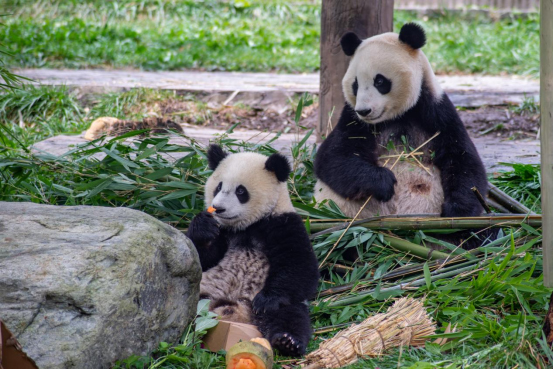The age of 1 year for giant pandas is equivalent to 3.75 years for humans. The average lifespan of wild giant pandas is between 18 and 20 years, while the average lifespan of captive giant pandas is between 25 and 30 years. Giant pandas begin to enter old age at the age of 20, and their vital signs at this time are significantly different from those during their youth and adulthood.

Pandas eating bamboos [Photo by Xu Jun]
Compared to pandas in their youth, older pandas tend to become more lethargic, less active, slow to move, eat less, and have weaker adaptability to the climate and environment. As they age, the vision of elderly giant pandas decreases, their teeth fall off, and they may also experience symptoms of elderly diseases such as hypertension, joint pain, ascites, decreased liver function, and heart failure.
Under captive conditions, staff will provide specialized food for elderly giant pandas, supplement them with other nutritious complementary foods and health products, and monitor their physical health status in real-time, providing them with a comfortable "elderly care" environment.
Copyright ©1997- by CRI Online All rights reserved